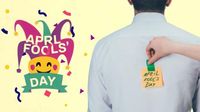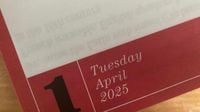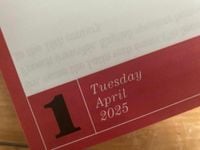April Fools' Day brings a unique blend of humor and absurdity, a day when pranks and jokes are not just tolerated but celebrated. This year, as April 1, 2025, approaches, the tradition continues to thrive, evolving with the times and technology.
On April 1, 1992, the United States experienced one of the most memorable pranks in history when NPR aired a fake announcement featuring an impersonator of former President Richard Nixon. The impersonator declared his candidacy for the presidency, stating, “I never did anything wrong, and I won’t do it again.” This clever ruse played on the public's familiarity with Nixon, who had resigned in disgrace over the Watergate scandal in 1974. The prank highlighted the fine line between reality and fiction, a theme that resonates on this day dedicated to humor.
But where did this peculiar celebration originate? While the exact beginnings of April Fools' Day remain unclear, several theories have been proposed. One popular theory links the day to the transition from the Julian calendar to the Gregorian calendar in 1582, when the New Year shifted from late March to January 1. Those who continued to celebrate the New Year on April 1 were labeled as “April fools.” This change was formalized by King Charles IX of France, who signed the new calendar into law in 1564.
Another theory points to ancient Roman celebrations, particularly the festival of Hilaria, where followers of the cult of Cybele would dress in disguises and engage in playful antics. This notion of playful deception has undoubtedly influenced the spirit of April Fools' Day as we know it.
In the modern era, the celebration has expanded beyond personal pranks among friends and family to include elaborate hoaxes from corporations and media outlets. Companies have embraced the day as an opportunity to showcase their creativity, often revealing bizarre products or services that are too outrageous to be real. For instance, this year’s lineup of pranks includes items like cat poo-scented candles, a Gen Z slang translator, and wearable mattresses. These absurdities reflect not only the playful spirit of the day but also the sometimes surreal nature of contemporary life.
Last year, companies pulled off some memorable April Fools' Day gags, including Duolingo's “Duolingo on Ice,” Scotch whisky from the makers of Scotch tape, and 7-Eleven's infamous hot dog water-flavored sparkling water. These pranks, while humorous, also serve as a reminder of the ever-blurring lines between reality and satire in our media-saturated world.
However, not all April Fools' pranks are received positively. Over the years, some companies have faced backlash for their ill-conceived jokes. Elon Musk, for example, jokingly claimed on April 1, 2018, that Tesla was “completely and totally bankrupt,” a statement that sent shares plummeting further, causing investors to question his leadership. Similarly, KBDS-FM radio in Bakersfield faced legal trouble after a prank involving a fake Hummer giveaway led to a lawsuit when the winner received a toy instead of the promised vehicle.
Even tech giants like Google have stumbled with their April Fools' Day jokes. In 2016, the company introduced a Gmail feature called “Mic Drop,” intended to add humor to email exchanges by inserting a GIF of a minion dropping a microphone. However, a coding error caused it to appear on unintended emails, leading to user frustration and an official apology from the company.
Despite the potential pitfalls, the essence of April Fools' Day remains intact: a celebration of creativity, humor, and a little harmless deception. As the day approaches, many people are reminded of the importance of skepticism, especially in an age where misinformation can spread like wildfire. The old adage rings true: “If your mother says she loves you, check it out.”
As we gear up for this year's festivities, it’s essential to keep an eye out for the various pranks and hoaxes that will undoubtedly flood social media and news outlets. From playful corporate gimmicks to personal jokes, April Fools' Day offers a chance to laugh and enjoy the lighter side of life.
For those planning to partake in the fun, the team at Slingo suggests some classic pranks to try out, such as changing a family member's phone language or filling a toothpaste tube with cream cheese. The goal is to bring smiles and laughter, as long as the pranks are lighthearted and in good spirit.
In conclusion, April Fools' Day serves as a reminder of the joy that humor can bring into our lives, even amidst the chaos of modern existence. As we celebrate this unique day, let’s embrace the laughter, be mindful of the pranks we play, and remember that sometimes, a little silliness is just what we need to brighten our day.









